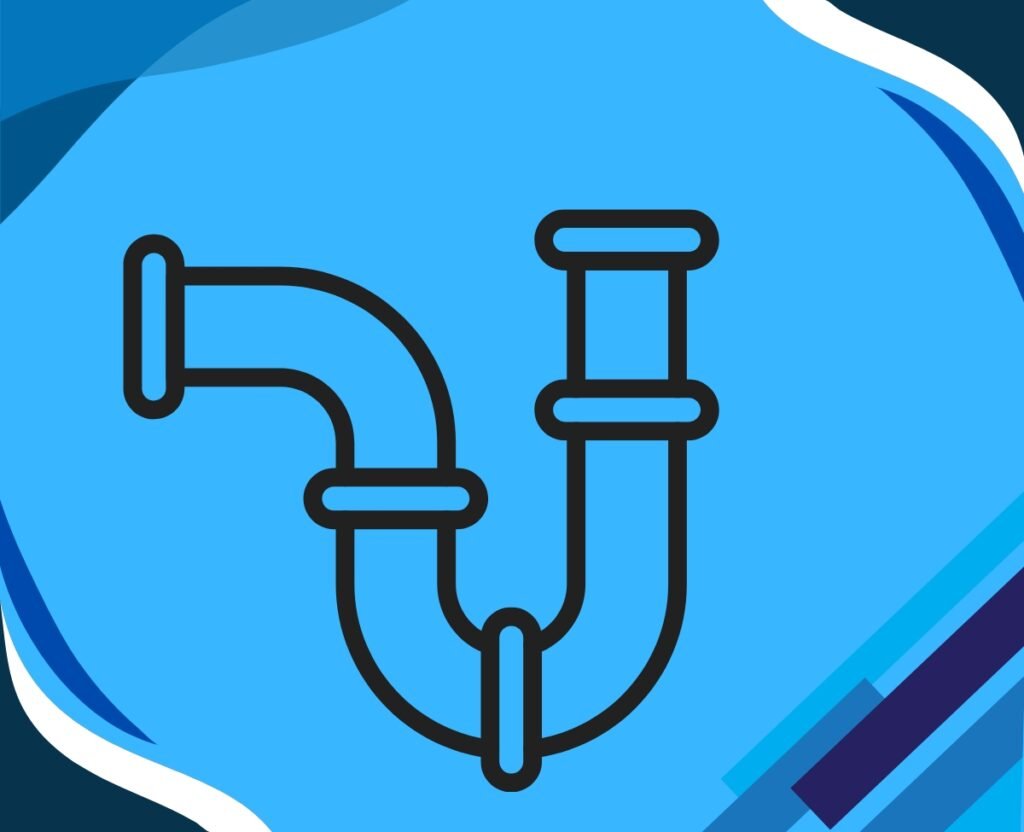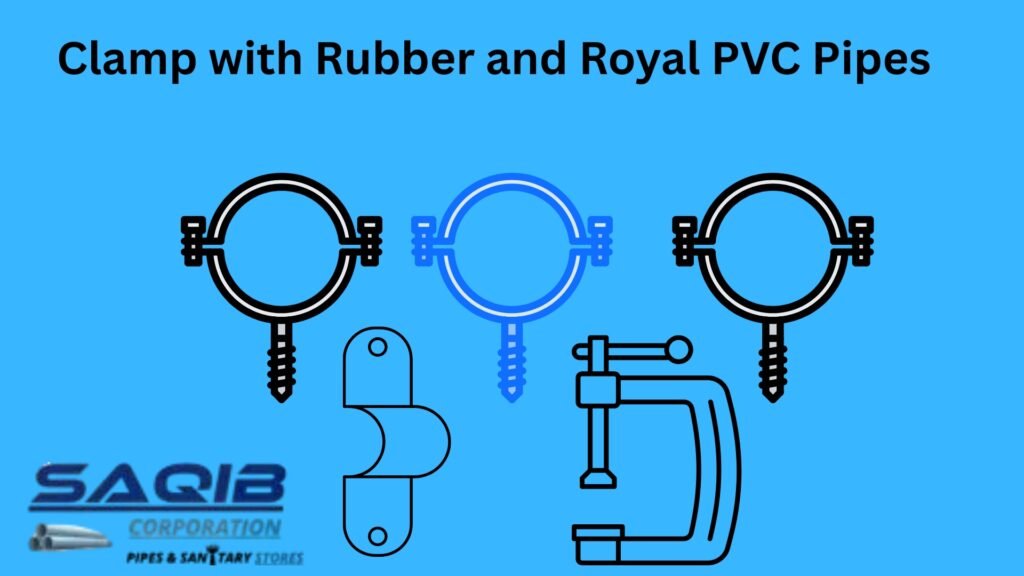Combining a clamp with rubber Royal PVC Pipes transforms piping structures, making them more secure, durable, and efficient. Rubber clamps take in vibrations and save you from harm. Together, they create solutions for varied infrastructure needs.
Experts highlight the synergy of these products in modern construction. Studies emphasize how rubber clamps enhance pipe stability, reducing strain and noise. This pairing symbolizes innovation in infrastructure design. It addresses durability and eco-efficiency suddenly. By merging functionality with sustainability, that equipment paves the way for safer, smarter systems.
The advantages stand unrivaled, making them an unmatched preference for modern-day infrastructure demanding situations. This post explores their particular capabilities, realistic programs, and advantages, helping you make informed decisions in your piping and infrastructure desires.
What Are Rubber Clamps?
Rubber clamps are specialised pipe add-ons designed to secure pipes securely in a region. Made with a chrome steel or metal base and lined with rubber, they help stabilize pipes at some stage in operation. Rubber-covered clamps stand out because they lessen vibrations, noise, and thermal expansion in a piping system.
Rubber clamps are usually used with PVC pipes in plumbing, drainage structures, and industrial applications. They stabilize pipes in opposition to walls, ceilings, and floors, improving structural stability without causing surface harm.

Key Features of Rubber Clamps
Durable Build
Rubber clamps combine toughness with flexibility. Their steel frames withstand wear and tear, even as the rubber lining absorbs shock and vibrations.
Size Options
These clamps are available in numerous sizes to suit pipes ranging from half of inch to six inches in diameter. Each clamp length meets precise desires, ensuring maximum versatility.
Noise Dampening
The rubber insulation minimizes operational noise, an important feature for residential and commercial use.
Benefits of Rubber Clamps in Piping Systems
Rubber clamps offer several advantages, aligning perfectly with modern piping requirements. Here’s why they dominate the marketplace:
- Vibrations from flowing water or fluids can strain a piping system. Rubber clamps soak up those vibrations, preventing long-term harm.
- They withstand slight thermal fluctuations.
- This prevents rapid wear in environments with changing temperatures.
By holding pipes neatly in place, rubber clamps contribute to clean, orderly installations.
Applications of Rubber Clamps
Rubber clamps find extensive use in various settings:
- Residential Plumbing
- Industrial Systems
- HVAC Systems
What Are Royal PVC Pipes?
Royal PVC Pipes are high-performance pipes crafted from polyvinyl chloride. Frequently utilized in business, residential, and business settings, Royal PVC Pipes are tailored for both above-floor and underground use. The emblem is designed for producing PVC pipes that exceed enterprise fine standards. Their lightweight yet durable creation makes them a favored choice across sectors.
Features of Royal PVC Pipes
Durability
Royal PVC Pipes last over a hundred years, whilst properly installed and maintained. The difficult cloth resists corrosion, influences, and chemical substances.
Cost-Effective
These pipes are budget-pleasant, providing long-term financial savings on both initial fees and renovation.
Heat and Chemical Resistance
Unlike metal pipes, Royal PVC pipes don’t rust and handle hot water with ease.
Lightweight Design
The lightweight material facilitates smooth transportation and installation.
Sustainability
Their manufacturing includes fewer assets, lowering the carbon footprint.
Categories of Royal PVC Pipes
- Standard PVC
- CPVC (Chlorinated PVC)
- UPVC (Unplasticized PVC)
Benefits of Royal PVC Pipes
Low Maintenance
Royal PVC Pipes require minimal upkeep. They do not rust, corrode, or clog, unlike metal systems.
Water Conservation
Their tight seals and secure fittings avoid leaks, saving water over time.
Eco-Friendliness
The production process is resource-efficient, and the material is recyclable, aligning with green building initiatives.
Flexibility in Applications
From plumbing and drainage to industrial facilities, these pipes are highly adaptable.
Reduced Installation Costs
Their ease of handling and assembly reduces labor costs and time during projects.
Why Combine Rubber Clamps with Royal PVC Pipes?
The combination of rubber clamps and Royal PVC Pipes is widely acknowledged for its functional and economic benefits. Together, they form a robust system that handles diverse environmental pressures and physical challenges.
Compatibility and Performance
Rubber clamps stabilize Royal PVC Pipes at every junction. This extends the lifespan of the system and minimizes maintenance costs.
Leak Prevention
PVC pipes have tight, secure joints. Rubber clamps reinforce these joints, ensuring no unnecessary strain leads to leaks.
Noise Reduction
The soft rubber lining prevents noise from impacting the surroundings, creating more peaceful environments for households and businesses.
Long-Term Reliability
When combined, these materials create a system designed for longevity. Rubber clamps protect pipe fixtures, while PVC’s durability ensures extended use.
Aesthetic Excellence
Clamps and PVC pipes provide neat, organized setups both indoors and outdoors. This is important for modern construction that emphasizes functionality and visual appeal.
Where to Use This Combination
- Residential Construction
- Industrial Projects
- Commercial Developments
Installation Tips
- Select the correct pipe and clamp size to avoid a mismatch.
- Inspect components for quality before use.
- Always follow safety guidelines during installation.
Conclusion
Royal PVC Pipes clamp with rubber shape modern infrastructure. Their durability reduces resource wastage. Their versatility and cost-effectiveness make them accessible for multiple applications. By integrating technology with traditional practices, they enable secure, long-lasting infrastructure.
Rubber clamps support PVC’s durability, enhancing their efficiency in demanding environments. This pairing is more than functional. It is a progression toward environmentally respectful construction. At a time when infrastructure demands durability and sustainability, these tools emerge as heroes. They quietly ensure systems operate without fail.

